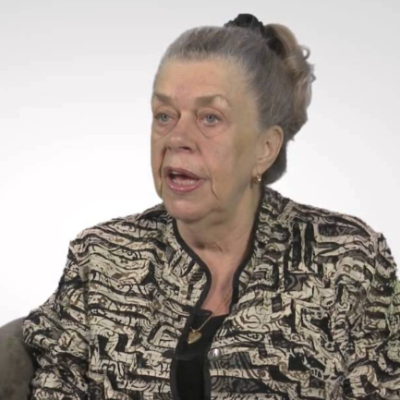Elijah Moshinsky’s mammoth 2001 production of Nabucco is back at the Met for its fifth revival. Last seen in 2016, Verdi’s third opera and first critical triumph, with a libretto by Temistocle Solera, follows the plight of the Israelites as they are vanquished and then exiled from Jerusalem by the Babylonian king Nabucco (Nebuchadnezzar) who declares himself god and then is struck by lightning, going temporarily insane. Though not among the composer’s greatest operas, the work is an elaborate spectacle, offering several worthy vocal moments and some brilliantly detailed orchestral sections, followed by some lengthy, less-than-ideally-inspired stretches.
Moshinsky’s traditional staging, essentially a sequence of still tableaux, holds up as well as it can, although the aura of the evening is fundamentally static. John Napier’s set design – an enormous, revolving, multi-tiered construction representing Jerusalem on one side, and Babylon on the other – appears as imposing as ever and functions more smoothly, its gears no longer emitting the creaking noises audible in the original presentations of this production. Andeane Neofitou’s non-specific period costumes, in styles ranging from Biblical Israel to 19th-century peasantry, look fresh enough and offer some welcome color against the somber-toned set.
What is most appealing about this revival is the consistently solid singing of the strong roster of performers in the principal roles. The vocal star of this season premiere performance was Liudmyla Monastyrska, reprising her 2016 turn as Nabucco’s illegitimate elder daughter Abigaille, the vengeful usurper who connives to seize her father’s throne. Her weighty but agile dramatic soprano superbly navigated her character’s fioriture as she mostly stood and delivered blazing fistfuls of sound. For the more intimate moments, such as her radiant prayer to the god of Israel in the opera’s final bars, where, dying after having taken poison, she successfully reined in her voice and delivered a persuasive pianissimo.
Baritone George Gagnidze, in his Met role debut, portrayed the imperious Babylonian king of the title. Generous with power and in touch with most aspects of his character, he was most impressive in his Act 2 breakdown (“Non son più re, son dio”), the stunningly hubristic moment in which he declares himself divine, and in his Act 4 “Dio di Giuda”, where, humbled and despairing, he begs the god of Israel for forgiveness.
In another role reprisal from 2016, Dmitry Belosselskiy displayed a rich and flowingly lyrical bass in his sage and subtle depiction of Zaccaria, the High Priest of Jerusalem. Making his Met debut in the role of Ismaele, the upstart nephew of the King of Jerusalem, tenor SeokJong Baek was in excellent voice, presenting a dignified bearing and singing with bright, robust tone. As his lover Fenena, the younger daughter of Nabucco, mezzo-soprano Maria Barakova was warm-voiced and endearing.
Conductor Daniele Callegari, the orchestra, and the incomparable Met choristers had an admirable night, coming together most effectively in the celebrated “Va, pensiero”, gently sung by the Israelites dreaming of home as they are held hostage on the banks of the Euphrates. Tinged with lyrical grace and desperate yearning, it was the most memorable highlight of the evening.




